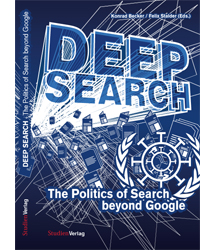
And here's the original. Isn't Bondi pretty.



Write what you know, it is often said. And love, is what I’d like to add. In embarking on the Wikipedia adventure this past week, the saying has certainly proven to be a very helpful starting point for me. Whereas I expected finding a suitable topic would be the main challenge, I knew what to write about within ten minutes.
For me, ‘what you know and love’ usually leads to a pop culture-related topic rather quickly. And so, starting from the requested articles, the first entry to consider was on an episode on one of my favourite tv shows. But I wanted to contribute a little more than a synopsis that not a whole lot of people of going to read anyway. I moved my focus to film and immediately decided to contribute to the list of European film festivals. At this point I hadn’t yet decided on writing in either Dutch or English, but seeing that the wonderful Cinekid Festival did not have a page on the English Wikipedia yet made it easy to make up my mind.
Cinekid Festival is an international children’s festival for film, television and new media based in Amsterdam, The Netherlands. It is the largest of its kind in the world and I feel it is important that an organisation and event like this has a solid presence on a large work of reference such as Wikipedia. Although Cinekid is represented on the Dutch Wikipedia, with my contribution I hope to expand its potential audience internationally.
My entry was put up on Monday 4 October and has since only been edited by me. A small but valuable contribution from fellow Master of Media Marije excluded: she helped tweak the image that I put up, which turned out to be the main challenge in my first active Wikipedia experience. So far, so good, but hopefully the entry will receive some comments or edits in the future. I have taken the initiative to inform Cinekid of their new Wikipedia page and am currently awaiting their feedback.



 It is hard to imagine life without search engines. Information is everywhere and we seem to need it all the time. So the importance of being able to access all information at any particular time of our choosing cannot be underestimated. This speaks for itself. Or does it?
It is hard to imagine life without search engines. Information is everywhere and we seem to need it all the time. So the importance of being able to access all information at any particular time of our choosing cannot be underestimated. This speaks for itself. Or does it?
Unfortunately, most people use search engines on a daily basis without ever even thinking about it, let alone asking critical questions about such an influential presence in their lives. Examining the social and technological construction of information and knowledge, Deep Search. The Politics of Search beyond Google aims to ask the questions that should desperately be raised by everyone using the Internet.
“How is computer-readable significance produced? How is meaning involved in machine communication? Where is the emancipatory potential of having access to such vast amounts of information? And where are the dangers of having to rely on search engines – particularly when operated by opaque monopolies – to make use of that information?” The latter, of course, an unavoidable reference to Google, the ultimate market dominator and recent producer of yet another search engine enhancement.
With contributions by everyone from Katja Mayer to Matteo Pasquinelli, Lev Manovich and many others, Deep Search covers the issues raised in four topics: histories, liberties, power and visibility, ensuring a thorough and global criticism on the subject. In the context of law for example, not many rules and regulations have been established that provide a framework for all the (potential) players in search engine field, thus allowing for much more legal tolerance than would probably be desired by most users. This is a well-known issue in countries without a tradition of free press and freedom of expression, but Joris van Hoboken renders a much-needed eye opener on the topic in a European setting.
And there are plenty more eye openers to be found in Deep Search. Its examination of the politics and power play that surround the development and use of search engines is insightful. The book offers an understanding of the past and daring statements and ideas for the future, but most of all it brings up those questions that are now more than ever relevant and incredibly important. If the next time you jump behind a computer and start searching you want to do it without a blindfold on, read this.
Full details:
Deep Search. The Politics of Search beyond Google.
By Konrad Becker and Felix Stalder, 2009
Studienverlag & Transaction Publishers
ISBN 978-3-7065-4795-6
